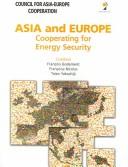| Listing 1 - 10 of 10 |
Sort by
|
Book
Year: 1975 Publisher: Paris
Abstract | Keywords | Export | Availability | Bookmark
 Loading...
Loading...Choose an application
- Reference Manager
- EndNote
- RefWorks (Direct export to RefWorks)
Book
ISBN: 2225849196 Year: 1995 Publisher: Paris : Masson,
Abstract | Keywords | Export | Availability | Bookmark
 Loading...
Loading...Choose an application
- Reference Manager
- EndNote
- RefWorks (Direct export to RefWorks)
Exportations --- Conditions économiques --- Pays en voie de développement --- Asie --- Conditions économiques. --- Politique économique. --- Conditions économiques --- Politique économique
Book
ISBN: 2100000829 Year: 1991 Publisher: Paris IFRI
Abstract | Keywords | Export | Availability | Bookmark
 Loading...
Loading...Choose an application
- Reference Manager
- EndNote
- RefWorks (Direct export to RefWorks)
Pétrole --- Produits pétroliers --- Industrie et commerce. --- Prix. --- 665.6/.7 --- 339.166.5 --- AA / International- internationaal --- 338.731 --- 338.012 --- 381.2 --- 347.731 --- Aardolie. Aardolieschok. --- Energie (productiefactor). --- Plaats waar de handel wordt gedreven. --- Wetgeving op effectenbeurzen, de goederenbeurzen en de deviezenbeurzen. Raider. --- Aardolie. Aardolieschok --- Energie (productiefactor) --- Plaats waar de handel wordt gedreven --- Wetgeving op effectenbeurzen, de goederenbeurzen en de deviezenbeurzen. Raider
Article
Year: 2013 Publisher: Paris : OECD Publishing,
Abstract | Keywords | Export | Availability | Bookmark
 Loading...
Loading...Choose an application
- Reference Manager
- EndNote
- RefWorks (Direct export to RefWorks)
As more and more countries seek to liberalise their foreign investment regimes to attract global flows of foreign direct investment (FDI), an essential question for policy-makers is no longer just what to reform but also how to reform. How is a reformist government to sell the idea of reform to the general public and to counter any opposition to reform? How are those who lose from reform in the short term to be compensated? Does sequencing of reforms matter? Korea offers a particularly interesting case study because its reforms beginning in the 1990s were both rapid and far-reaching. Based on the OECD FDI Regulatory Restrictiveness Index, Korea was the biggest reformer of its policies towards FDI between 1997 and 2010 among a sample of 40 developed and emerging countries. The objective of this study is to document the liberalisation of the FDI regime in Korea and to examine how and why it came about. What were the main obstacles and what were the main drivers? How did FDI liberalisation relate to other reforms (trade policy and regulatory reform, policies towards outward investment)? The paper does not ask what more Korea needs to do but rather what lessons can we draw from the Korean experience about how to achieve rapid and sustainable reforms? The insights from Korean liberalisation are useful for other countries, particularly non-OECD members in Asia and elsewhere, which still have high levels of statutory restrictions as measured by the FDI Index. Many of these countries are eager to attract more investment and recognise that they will need to reform their investment regime but are unsure how best to proceed. Each country?s reform path is unique, and this study will not provide a roadmap for other countries to follow, but it will nevertheless serve as a useful model for reformers in other countries and provide evidence that successful reform is accompanied by rising inflows of direct investment.
Article
Year: 2013 Publisher: Paris : OECD Publishing,
Abstract | Keywords | Export | Availability | Bookmark
 Loading...
Loading...Choose an application
- Reference Manager
- EndNote
- RefWorks (Direct export to RefWorks)
As more and more countries seek to liberalise their foreign investment regimes to attract global flows of foreign direct investment (FDI), an essential question for policy-makers is no longer just what to reform but also how to reform. How is a reformist government to sell the idea of reform to the general public and to counter any opposition to reform? How are those who lose from reform in the short term to be compensated? Does sequencing of reforms matter? Korea offers a particularly interesting case study because its reforms beginning in the 1990s were both rapid and far-reaching. Based on the OECD FDI Regulatory Restrictiveness Index, Korea was the biggest reformer of its policies towards FDI between 1997 and 2010 among a sample of 40 developed and emerging countries. The objective of this study is to document the liberalisation of the FDI regime in Korea and to examine how and why it came about. What were the main obstacles and what were the main drivers? How did FDI liberalisation relate to other reforms (trade policy and regulatory reform, policies towards outward investment)? The paper does not ask what more Korea needs to do but rather what lessons can we draw from the Korean experience about how to achieve rapid and sustainable reforms? The insights from Korean liberalisation are useful for other countries, particularly non-OECD members in Asia and elsewhere, which still have high levels of statutory restrictions as measured by the FDI Index. Many of these countries are eager to attract more investment and recognise that they will need to reform their investment regime but are unsure how best to proceed. Each country?s reform path is unique, and this study will not provide a roadmap for other countries to follow, but it will nevertheless serve as a useful model for reformers in other countries and provide evidence that successful reform is accompanied by rising inflows of direct investment.

ISBN: 210001482X Year: 1992 Publisher: Paris Dunod
Abstract | Keywords | Export | Availability | Bookmark
 Loading...
Loading...Choose an application
- Reference Manager
- EndNote
- RefWorks (Direct export to RefWorks)
German reunification question (1949-1990) --- Allemagne, Question de la réunification de l' (1949-1990) --- Germany --- Europe --- Allemagne --- Relations --- 338 <430> --- 327 <430> --- -Germany --- -Europe, Eastern --- -East Europe --- Eastern Europe --- Politics and government --- -Economic conditions --- -History --- -Relations --- -338 <430> --- -Politics and government --- -German reunification question (1949-1990) --- Allemagne, Question de la réunification de l' (1949-1990) --- Europe, Eastern --- East Europe --- Economic conditions --- History --- POLITIQUES PUBLIQUES --- VIE INTERNATIONALE --- HISTOIRE --- DEPUIS 1989 --- ALLEMAGNE

ISBN: 9784889070743 4889070745 Year: 2004 Publisher: Paris: Institut français des relations internationales,
Abstract | Keywords | Export | Availability | Bookmark
 Loading...
Loading...Choose an application
- Reference Manager
- EndNote
- RefWorks (Direct export to RefWorks)
"Energy security is an issue of common concern in Asia and Europe because of broad similarities in their energy situation, such as a high import dependency and dependence on the Middle East. The rise in energy demand in Asia has substantially affected the global energy balance and will have obvious implications for the rest of the world, and Europe in particular. Energy security also exhibits to some extent the characteristics of a public good, which may be usefully managed in a collective way. As a result, there is definitely scope for cooperation on energy issues between the countries of the two regions, despite possible competing interest. The major objective of the present volume is to show that broadly converging interest between the two regions on a number of energy security-related issues give them a opportunity to blaze a trail and provide guidance for global governance on these matters."--P. [4] of cover.
Book
Year: 1992 Publisher: Angers: ASEA,
Abstract | Keywords | Export | Availability | Bookmark
 Loading...
Loading...Choose an application
- Reference Manager
- EndNote
- RefWorks (Direct export to RefWorks)
Book

ISBN: 2757418874 2757401807 Year: 2017 Publisher: Villeneuve d'Ascq : Presses universitaires du Septentrion,
Abstract | Keywords | Export | Availability | Bookmark
 Loading...
Loading...Choose an application
- Reference Manager
- EndNote
- RefWorks (Direct export to RefWorks)
Quelle sera l'Europe en 2020 ? Quel sera son rôle sur la scène internationale ? Comment fera-t-elle face aux défis globaux à cet horizon ? Le xxie siècle a commencé par une première décennie de turbulences pour l'Europe : guerre contre le terrorisme, interventions en Afghanistan et dissensions sur le dossier irakien, difficile ratification du traité de Lisbonne, crise économique mondiale. Comment préparer l'avenir lorsque le court terme occupe tout l'horizon ? S'appuyant sur leur expertise et leurs travaux scientifiques, 23 chercheurs allemands et français proposent une analyse inédite sur l'Union européenne et le monde en 2020. Des scénarios prospectifs présentent les futurs que l'Europe peut se donner. Face aux défis de sa crédibilité internationale et de sa cohésion interne, l'Union européenne dispose désormais des moyens de ses ambitions, pourvu qu'elle les mette en œuvre en toute cohérence. Cet ouvrage vise à dessiner, au-delà des crises actuelles, l'Europe du xxie siècle que les Européens pourront, et surtout voudront, construire ensemble.
Twenty-first century --- World politics --- Forecasting. --- Europe --- Politics and government --- Foreign relations --- 21st century --- Third millennium --- Council of Europe countries --- Eastern Hemisphere --- Eurasia --- politique
Book

ISBN: 2271129842 2271073014 Year: 2019 Publisher: Paris : CNRS Éditions,
Abstract | Keywords | Export | Availability | Bookmark
 Loading...
Loading...Choose an application
- Reference Manager
- EndNote
- RefWorks (Direct export to RefWorks)
Longtemps le Maghreb a paru être une simple arrière-cour de l'Europe, une sous-région d'un espace méditerranéen peinant à trouver sa cohésion politique. Les révolutions de l'hiver 2011 ont troublé et redéfini ces rapports anciens. Ce livre propose, au début de ce nouveau cycle de l'histoire, de revenir sur les éléments fondamentaux d'un Maghreb renaissant. En retraçant de manière analytique l'évolution de la région pendant les vingt dernières années, les spécialistes rassemblés ici apportent des éléments d'explication aux carences et dysfonctionnements révélés par les frondes de l'hiver 2011 et prennent en compte les facteurs qui ont contribué à des analyses erronées et biaisées des réalités de ces pays. Ils dévoilent également les dynamiques internes et régionales, les limites et les contraintes qu'elles imposent. L'ouvrage offre également des analyses actualisées des phénomènes migratoires, mais aussi des systèmes d'aide et de partenariat euro-méditerranéen, soulignant la nécessité pour les États du Nord de revoir leur regard sur le Sud. Car ces nations nouvelles, où émergent l'individu et le citoyen, fortes d'une jeunesse décomplexée, disposent de tous les atouts pour entrer de plain-pied dans la mondialisation.
Africa, North --- Foreign relations --- Politics and government --- mondialisation --- individu --- politique --- nation
| Listing 1 - 10 of 10 |
Sort by
|

 Search
Search Feedback
Feedback About
About Help
Help News
News